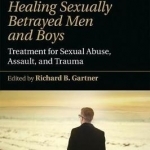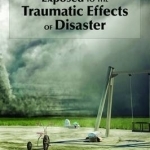
Reliability Engineering: A Life Cycle Approach
Book
Reliability Engineering - A Life Cycle Approach is based on the author's knowledge of systems and...

Healing Sexually Betrayed Men and Boys: Treatment for Sexual Abuse, Assault, and Trauma
Book
Healing Sexually Betrayed Men and Boys is the new authoritative source for treatment of men and boys...
Merissa (13760 KP) rated Driving Me to You in Books
Dec 17, 2018
This story is full of bumps and bends as Sam and Verlaine learn about each other, make friends with each other and the others in the small circle, and let the sparks fly between them. Sam is also trying to find a way of mending her relationship with Gemma, is it really broken beyond repair? The things you find out about Marcus will make your toes curl but I won't say whether that's in a good or bad way.
The thing that I love about Julie Farrell's stories is that although you have the main characters, you also get taken along on the side stories of the other characters. This makes the book simply a delight to read and they are never boring! They are realistic but not depressing. Julie's heroines have backbone, a sense of humour and wit, and yes, slightly kooky in a good way. Her hero's are not perfect, they have their flaws which just makes them more loveable.
If you are looking for a modern romance with a hint of suspense and mystery, then check out this book. I honestly can't see how you would be disappointed.

Unlocking the Clubhouse: Women in Computing
Jane Margolis and Allan Fisher
Book
The information technology revolution is transforming almost every aspect of society, but girls and...
Computing gender studies
Bob Mann (459 KP) rated Ghost Stories (2018) in Movies
Sep 29, 2021
Nyman himself plays TV paranormal debunker Professor Goodman who receives a surprise message from a respected colleague, long thought dead, who on his death bed wants Goodman to investigate the three cases from his career that he was never able to debunk. The first concerns Tony Matthews (Paul Whitehouse, “The Death of Stalin“) as a night watchman at a spooky old asylum; the second concerns Simon Rifkind (Alex Lawther, young Turing in “The Imitation Game“) as a freaked-out young man with a forest breakdown; and Mike Priddle (Martin Freeman, “Black Panther“) as a rich broker with parenting issues. As Goodman investigates each case weirder and weirder things start to happen: is this his mind playing tricks as his faith is rocked, or is there something more sinister going on?
The primary issue I have with this film is its portmanteau nature, harking back to similar films like “The Twilight Zone: the Movie”. Having three segments, loosely linked together, feels like a clunky device for a feature film…. (“Why are there three cases to investigate? Well, two would have made the film too short, and four would have made it too long!”).
That being said, the overall story arc and the drawing together of the strands for the unexpected (although not terribly original) conclusion, is intriguing.
The film looks and feels like a British-made horror film, which is both a compliment and a criticism. Who doesn’t like the jump-scares and the vague tackiness of a Hammer horror? But if you care to compare the production values on show here versus “A Quiet Place“, there is no comparison. The location-shot scenes (which are most of the scenes) seem to be very poorly lit: and that’s the non-spooky ones where you are supposed to see what’s going on!
The cast seem to be well-suited to their roles, with Paul Whitehouse in particular being impressive as the ‘on the make’ Matthews, who always feels like being on the knife-edge of violent outburst. I particularly liked Alex Lawther who does “spooked” extremely well! The script also seems to be well-tuned to the characters, with a number of laugh-out-loud lines. “****ing O2” exclaims Simon as he waves his mobile in the air… something the marketing department at the telecoms giant must have loved!
The critics seem to have been overtly positive about this film, which I can’t quite match. Apart from one or two scenes towards the end, all of the jump scares were pretty well signposted in advance. But it’s still as fun as a slightly tacky ghost house ride at the fairground, if you like that sort of thing, and is certainly a much more interesting and better watch in my book than some recent and much higher budget horror films like “It“.
Hazel (1853 KP) rated Hyacinth Girls in Books
Dec 7, 2018
Hyacinth Girls</i> is the beautifully written debut novel by Lauren Frankel. Rebecca is the guardian of thirteen-year-old Callie who, despite phone calls from school, believes Callie can do no wrong. When Callie is accused of bullying another student, Rebecca easily turns the story around to make Callie the victim.
The story begins with a prologue in which a billboard is being erected featuring Callie’s face and the words “Do you know your children?” This implies that something tragic happens to Callie, but as we read, we question exactly what this is. Was Callie involved with the bullying at school, or was she the one being bullied? Callie has not exactly had an easy life with both her parents dying when she was five, and therefore Rebecca often glosses over the true meanings of Callie’s behaviour, insisting that Callie is acting out of grief.
As well as the question of what happens to Callie, the readers are plagued with many other questions as the story goes on. For example: How did Callie’s mother, Joyce, die? How did her father die? Who is her father? Who is sending Rebecca letters from prison? These queries get answered toward the end of the book thus encouraging readers to continue in order to sate their curiosity.
It is interesting to see how an adult interprets children’s behaviour based upon their own lives and experiences as well as jumping to conclusion about the way the child is feeling. <i>Hyacinth Girls</i> provides both the adult and the child the opportunity to express their point of view. Rebecca begins by trying to understand what Callie is going through, and getting it wrong, as well as introducing the reader to the past and present situation. Callie, on the other hand, reveals the truth.
Although not essentially a young adult novel, Callie’s narrative makes it suitable for teenagers as well as adults. The theme of bullying is something many young people may be familiar with from either being a victim, the cause or a bystander. Parents, on the other hand, will easily relate to Rebecca as she tries to understand her best friends daughter.
Overall <i>Hyacinth Girls</i> is a great book with a very intense theme. It is so realistic that it creates a sense of shock as we realize that there are school children around the world experiencing all the things mentioned within the story. Hopefully this novel will open readers’ eyes and make them more aware of the things they do and how they affect other people.
Little Ray Of Sunshine (41 KP) rated It’s a Wonderful Life in Books
Jan 11, 2019 (Updated Feb 10, 2019)
This book is set from 3 characters point of view Beth, Beth’s Sister Lou, and Beth’s Husband Daniel.
Beth as everything she wants a perfect life, perfect job and a perfect husband and 2 children, Sam and Megan. But not everything is perfect as Beth doesn’t feel that her husband Daniel doesn’t support her job picture-book artist. But when she is struggling to get the ideas flowing and she doesn’t get along with her editor Vanessa. Vanessa brings in help has the new art director and old flame of Beth called Jack Stevens. When she sees him she is transported back to when they were in college and she starts to contemplate if she was still with Jack what her life would be like, she can’t get Jack out her mind. Will Beth be tempted to have an affair with Jack? When he tells her that he made mistake in the past.
While Beth is struggling to get inspiration on her book and her mind is on Jack her husband is struggling with his new job as a head teacher for a school want needs help as they had bad results from Ofsted. Daniel is struggling to balance school and handle his children he hardly sees as they have grown up, Sam keeps getting drunk hanging out with his friends and doesn’t care about his GCSE’s and Megan is also hanging out with the wrong people. He just wants a better life with them than he did with his father. Daniel’s father Reggie comes back into his life trying to build bridges but he doesn’t want anything to do with him. But Reggie wants to see his grandchildren. So when Sam and Megan meet him they want him to be back in their dad’s life and Sam starts to bond and they have a lot in common as they both creative and love music. This is where it breaks the family apart as Sam, Megan and Beth want Daniel to hear his dad out and see why he left him when he was younger. You see Daniel’s past and how he feels toward his dad and he wants to build bridges with his dad but he's scared that he will walk out of all their lives. Will he forgive his dad and find out what truly happened and why he left?
Beth’s sister Lou is going through a bad patch in her life and her also as a big secret from her family. She just feels that her family especially her mum and dad wouldn’t like that she feels attraction to other women. She feels that she's the black sheep of the family as Beth is the ‘perfect’ one and their brother Ged is the ‘golden’ boy and never does anything wrong. She's going through a break up from her Girlfriend Jo as she felt that their relationship was one way as Jo never had time for her. Lou also lost her job so she had to move back in with her mum and dad. But when she moved in she notices something wrong with their mum and dad. It turned out that their dad was having an affair with women from an art class. Lou felt her life and her parent's lives are falling apart. You feel sorry for her as you want her to have a happy life. Will their parents accept that she feels more attractive to women?
As you can see the book is based around Christmas and being with their family but everything seems perfect on the outside but once you get reading into the book you see that be careful what you wish for.
This book was a heartwarming book and I can’t wait to read more of Julia Williams books. She really grabbed me into their world and it shows me that all families aren’t perfect. I felt their mum is like mine as my mum always plans in advance for Christmas.
I will make sure to purchase more of her books as she grabbed me from the first page and it made me feel all warm inside.
Thanks, Julia x
Sarah (7800 KP) rated Polar (2019) in Movies
Feb 23, 2019
The main problem is the villains. Yes this is based on a comic book, but is that an excuse for having such vile looking and plain bad villains. They are all horrendously bad characters and beyond irritating, although the worst is by far the boss villain played by Matt Lucas. I do like Matt Lucas, but I’ve come to realise he’s only good when he’s playing silly sketch characters. Which is what he’s doing here, but it’s out of place and far too cheesy. He doesn’t make for a menacing villain and although he’s laughable, it’s not in the way intended.
Mads Mikkelsen is the only real reason that this film is watchable. Every time he’s on screen the film becomes as enjoyable as it can be. It’s a shame really as there is potential buried in this - the plot as a whole isn’t bad, and I like a lot of the fight scenes that Duncan is in and the gory bits too. It’s just a pity they made it so damn garish and cheesy. If they’d have tried to make it a little darker, maybe a little like Sin City or something, it could actually have been quite good and have lived up to all of Mads Mikkelsens scenes.
Unless you’re desperate, I wouldn’t recommend watching this. And if you’re a Mads Mikkelsen fan, you’d be better off choosing one of his better offerings than this!
Deborah (162 KP) rated Winter King: The Dawn of Tudor England in Books
Dec 21, 2018
The Winter King of the title is Henry Tudor. Although more a history of the reign than biography (his early life is described only in brief), Henry doesn't come across as particularly likeably - not someone you'd like to sit down to dinner with! His whole style of kingship seems to be based around control of everyone around him and control was often achieved through financial means rather than physical threat. The story unfolds as almost horrific where we see innocent people 'informed' against, imprisoned illegally, tried with 'packed' juries and presented with crippling fines! The wonder really is that such a king was not overthrown! We see here how the notorious Empson & Dudley really worked, and although in a way they were scapegoats for many in the old Henrician regieme when Henry VIII came to the throne, you can see how imprisoning and then executing this unpleasant pair would have been a great crowd-pleasing move!
This book also shines some light on other charaters; it goes someway to explaining the later behaviour of Henry VIII for starters! The insight into the relationship of Philip of Burgundy and Juana of Castile was brief, but enlightning.
Many Tudor writers go straight for the two obvious targets; the larger than life Henry VIII and his daughter, Elizabeth I, so here it made an interesting change to see the earlier Tudor world and how Henry VIII grew up in this; even if it was a place full of paranoid and insecurity!

Care of Children Exposed to the Traumatic Effects of Disaster
Jon A. Shaw, Zelde Espinel and James M. Shultz
Book
Care of Children Exposed to the Traumatic Effects of Disaster addresses the effects of disaster on...


